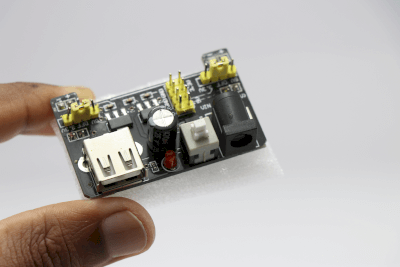https://us.metoree.com/categories/5276/What Is a Power Supply Module?

A power supply module is the key component that provides an electronic device with the proper amount of power it needs.
It is responsible for converting the original power supply to the specific voltage or current required by the device. As a result, the device receives safe and efficient power. Power supply modules are generally purchased as components from specialized power supply module manufacturers, rather than designed in-house.
This approach has several advantages. First, it saves time and money. The quality of the power supply modules provided by the specialized manufacturer is guaranteed and has already been tested to a certain level of performance. Therefore, power supply solutions can be implemented more quickly and inexpensively than designing and testing power supply circuits in-house.
Furthermore, power supply modules can be applied to a wide range of electronic devices, such as servers, networking equipment, home appliances, and industrial equipment. Their form and performance will vary depending on the device used and its uses of, but their primary purpose is to regulate power properly and ensure proper device operation.
Uses of Power Supply Modules
Due to their versatility, power supply modules are used in a wide range of fields. The following are some specific examples of their use.
1. Computer System
In personal computers and servers, power supply modules play a major role. A computer consists of various components, such as the motherboard, CPU, memory, and storage devices, each of which operates at a specific voltage and current. Power supply modules provide adequate power to these components to ensure stable operation of the entire system.
2. Network Equipment
Network equipment, such as routers and switches, is another important use case for power supply modules. These devices transmit and receive data at high speeds, so a stable power supply is essential.
3. Industrial Equipment
Sophisticated equipment, such as CNC machines and robots, is used in the manufacturing industry. These devices also operate at specific voltages and currents and require power supply modules.
4. Medical Equipment
Medical devices require power supply modules that are safe and reliable because of their potential impact on the human body. For example, life-support devices such as artificial hearts and ventilators use power supply modules that can back up in the event of a power failure.
5. Home Appliances
Power supply modules are also used in home appliances such as televisions, washing machines, and refrigerators. These products obtain their power from the household power supply, and the power supply module converts that power into the form needed by the product.
Principle of Power Supply Modules
There are two types of power supply modules: switching power supply and linear power supply.
1. Switching Power Supply
Switching power supplies will control the current by turning the power supply on and off at a high frequency. Specifically, an AC power supply is first converted to DC using a rectifier. Next, this DC is converted into high-frequency pulse waves using switching elements, such as MOSFETs. This high-frequency pulse wave is then sent to a high-frequency transformer, which converts it to the required voltage.
PWM control adjusts the width of the pulse wave to maintain a constant output voltage. The voltage is generated as required by turning the switching elements on and off, and no extra power is consumed. In this way, switching power supplies achieves high efficiency. Therefore, they are often used in high-power applications, e.g., powering computers.
2. Linear Power Supply
Linear power supplies control the output voltage by directly regulating the current. This isolates the output from input voltage variations and provides a very smooth DC power supply. However, this method is less efficient and tends to generate heat. Linear power supplies are therefore used in areas where noise is not tolerated, such as in acoustic and precision measuring equipment.
Other Information on Power Supply Modules
About Noise
A problem with switching power supplies is the noise generated by high-speed switching. Since high-frequency noise can interfere with surrounding electronic equipment, noise countermeasures are important. Noise countermeasures include the use of ferrite cores and various types of EMI filters.
Thus, switching power supplies has made it possible to realize compact and highly efficient power supply modules, but the noise they generate must be carefully considered. Power supply design is optimized by considering the trade-off between the two.